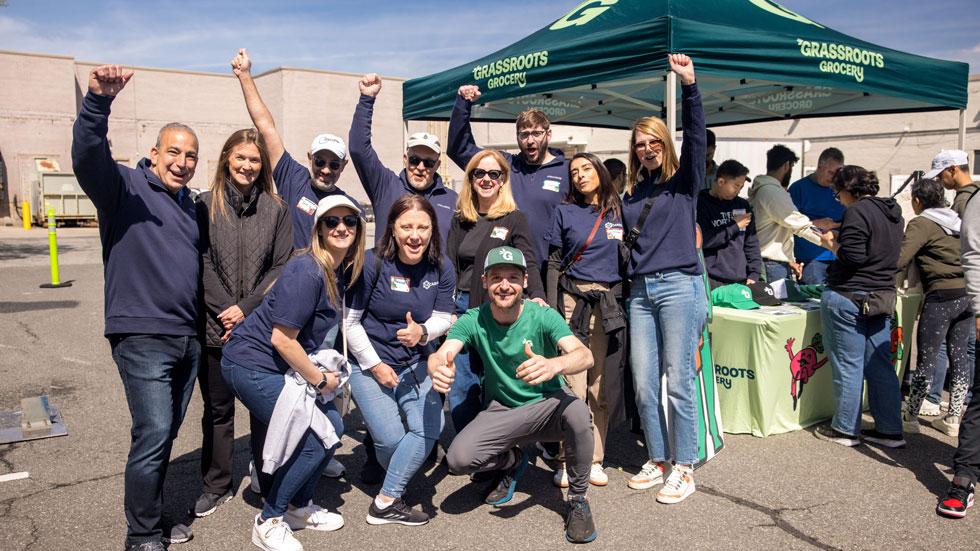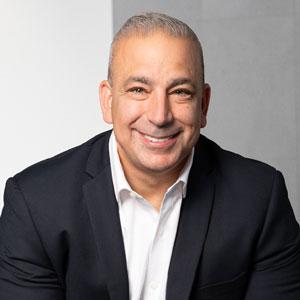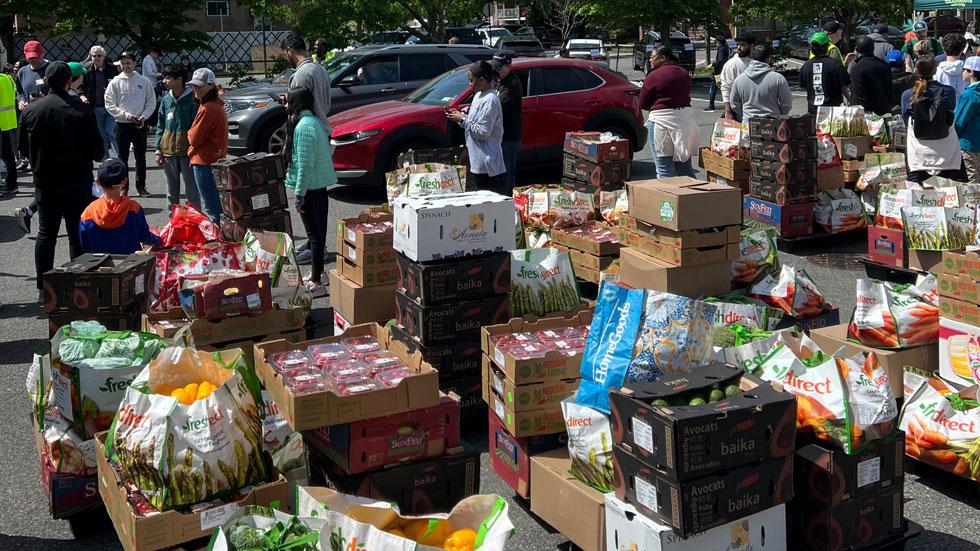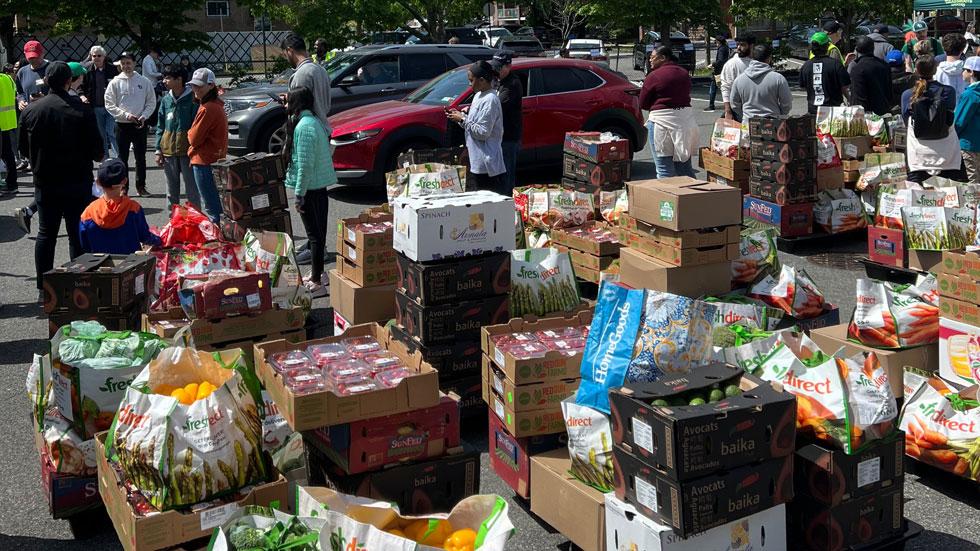
As food insecurity issues in the five boroughs of New York City came to the fore during the pandemic, Urban Edge Properties (NYSE: UE) stepped up to provide non-profit organizations with vital storage and distribution space for donated food. These partnerships continue today, as the REIT remains committed to supporting and connecting with the communities in which it operates.
In March 2020, just as the pandemic began to impact real estate owners and tenants alike, a local community leader in the Bronx contacted Joseph DeGiorgio Jr., senior vice president of asset management for Urban Edge, to ask for help with an initiative to help feed people during the crisis and to see if he was willing to meet with the organization that had reached out for assistance.
The meeting between DeGiorgio and Shana McCormick, executive director of the Skyline Charitable Foundation in Long Island City, New York, and program director for RAP4Bronx, which addresses food insecurity, led to a long-term partnership.
“I thought maybe we just might make a donation, but she needed space to set up a food relief program,” DeGiorgio says. “I needed to ask Jeff Olson, Urban Edge’s CEO, for his approval to donate the space. Despite the uncertainty around what was happening with our tenants and the shopping center industry, Jeff immediately said yes, and it just kind of took off from there.”
Urban Edge offered RAP4Bronx space in a shopping center called Bruckner Commons that was being redeveloped in phases. As vacant spaces were leased, the nonprofit group was moved to other vacant or storage spaces that would accommodate their needs.
‘Priceless’ Donations
The Skyline Charitable Foundation, a nonprofit organization, was founded in 2014 by Skyline Restoration, a construction company that has restored some of New York City’s most iconic buildings, including the Plaza Hotel. In 2020, the Skyline Foundation created RAP4Bronx (Relief Access Program for the Bronx).
“We had vehicles and people available, so through word-of-mouth we started connecting with organizations that needed our help. We started a task force with other companies to utilize resources to fill gaps,” McCormick says.
Initially, RAP4Bronx provided transportation assistance for hospitals, then packed pantry bags for laid-off construction workers.
“We started supporting food pantries and community groups, became part of World Central Kitchen’s food relief operation, and worked with City Harvest, the city’s largest food rescue service,” McCormick says. “Our network grew exponentially, so Urban Edge’s donation of space to park our vehicles and pack food, plus the use of a loading dock, was incredibly important.”
The space donated by Urban Edge gave RAP4Bronx the opportunity to accept pallets of donated food, including a trailer full of 19 pallets donated every Tuesday by City Harvest, McCormick says.
“A check goes a long way, and I would never turn down money, but in-kind donations like Urban Edge have provided are priceless for this type of operation,” McCormick says. “We have a sense of home without having to go crazy worrying about how to pay for it.”
Since April 2020, RAP4Bronx has provided more than four million pounds of food to more than 45 community groups in the Bronx, Brooklyn, and Queens, serving approximately 4,000 households.
“We work six days a week delivering food to different locations,” McCormick says. “Our partnership with Urban Edge equates to us being able to build capacity. We have a sense of security going forward because of the strength of our connection with Urban Edge.”
The food RAP4Bronx distributes comes from a variety of sources, including rescued produce from City Harvest, the New York City Food Bank, meals prepared by restaurants through the Rethink Food nonprofit organization, and from local farmers.
“The Bronx is the unhealthiest county in New York State, so we’re trying to provide more fresh produce to the community,” McCormick says. “We also get donations of furniture and household items that we use to help families get set up if they’re coming out of a shelter.”
‘Produce Party’
The successful partnership between Urban Edge and RAP4Bronx caught the attention of Rohan Amin, chief product officer of JP Morgan Chase and a board member of Grassroots Grocery, an organization also created at the start of the pandemic to address food insecurity in the Bronx and Harlem.

The logistics of getting food— especially rescued perishable food—from a warehouse to packaging and delivering it to people presented a clear challenge for Grassroots Grocery, which had been operating out of a church parking lot. Since there was a previous existing business relationship between JP Morgan Chase and Urban Edge, Amin contacted Olson and DeGiorgio to see if Urban Edge could help.
Seizing on an opportunity for Urban Edge to make deeper connections within the larger New York City community, the REIT was able to find a storage room in its Gun Hill Commons shopping center and since December 2023 has provided a permanent parking space for the Grassroots Grocery truck, indoor and outdoor space for more than 200 volunteers to gather, and room for a shipping container to store supplies.
Grassroots Grocery receives surplus food from the Hunts Point Produce Market in the Bronx, one of the world’s largest produce markets with roots going back to the 1790s. Every Saturday is a “Produce Party” day in the Bronx for Grassroots Grocery.
“Every Saturday we receive more than 10,000 pounds of produce and our volunteer drivers bring the produce to about 27 community groups in the Bronx and Harlem to get healthy food to 1,650 households,” says Dan Zauderer, founder and CEO of Grassroots Grocery. “It’s amazing to work with a company like Urban Edge that prioritizes giving back to the communities where they own property.”
On a recent Saturday, DeGiorgio and his wife were among the volunteers participating in the “Produce Party.”
“My wife and I assisted with unloading the truck, sorting and repackaging rescued produce, and were responsible for delivery to the Bronx Community Board 1’s office. When we got close to the Community Board’s office where we were making a delivery, we saw a line of people more than two blocks long waiting for us,” DeGiorgio says. “The impact of Grassroots Grocery and RAP4Bronx is amazing. We’re collaborating with great people to address food insecurity in areas that need it the most.”
Improving Communities
Urban Edge employees frequently host events at their shopping centers and volunteer in their communities.
“Our mission to improve communities starts with, but extends beyond, redeveloping properties and leasing space to excellent tenants,” DeGiorgio says. “We recognize the importance of supporting the communities where we operate. A few years ago, we intensified our community outreach efforts in and around our shopping centers. Then, approximately eight months ago, Urban Edge established our ‘UE Cares’ committee. The goal of this committee is to strengthen our community engagement commitments, generate innovative ideas for expanding our community work, and identify new opportunities to support local communities.”
Urban Edge also donates space to the Town of Huntington’s Tri Community and Youth Agency, an organization on Long Island that provides donated food, clothing, and after school education programs. At Riverwood Commons in Hyde Park, Massachusetts, Urban Edge maintains a community room that provides space to local community-based organizations to teach classes such as English as a Second Language, dance, and religious instruction, and also provides a place to support groups to operate.

“I often speak with local residents, community leaders, and community-based organizations at various events and the consistent feedback that I receive is that they are so proud to have Urban Edge as property owners in their neighborhoods,” DeGiorgio says.
The impact of these projects have been significant, DeGiorgio says. “It’s not about handing out dollars, it’s about searching for creative ways to leverage our two greatest assets (our people and our properties) to help communities,” he says.
In addition to in-kind space contributions, Urban Edge employees can donate money to local organizations via UE Cares as a payroll deduction that is matched by the company. Each month a beneficiary of the funds is chosen.
“Our UE Cares committee designates employees to organize various community outreach events and initiatives. This provides committee members with an opportunity to own and get excited about planning and completing a project,” DeGiorgio says.
“The committee is also responsible for organizing an Urban Edge Giving Day where employees can volunteer for things like Hackensack River Keepers where employees removed trash and debris from an area adjacent to our Hackensack Commons property or ‘RAP4Bronx‘ food pantry. It’s truly amazing the amount of trash we collected from Hackensack and the amount of food distributed to local residents of the Bronx.”
Community Growth Benefits Everyone
Since 2020, Urban Edge has found even more space for RAP4Bronx.
“They’re creative and so are we, so we moved from one location to another with their help as we needed more room,” McCormick says. “With their help, all the money we raise can go into our programs instead of renting space.”
Now that the Bruckner Commons shopping center is nearly 100% occupied, McCormick and DeGiorgio recently came up with a longer-term solution: a satellite office created from a shipping container on land donated by Urban Edge.
“We received grant funding from New York State to pay for the shipping container, which will have refrigerated space, dry storage, and space where volunteers can work,” McCormick says.
Having a home for their programs and a demonstrated partnership with Urban Edge helps RAP4Bronx when they apply for grants, McCormick says.
“It just takes some initiative for companies to do this,” DeGiorgio says. “You just need to use your moral compass. It’s great to work for a company that embraces and encourages this kind of community outreach.”
